Ex-President Raisi Banned Women From Executive Roles, Says Iran's VP
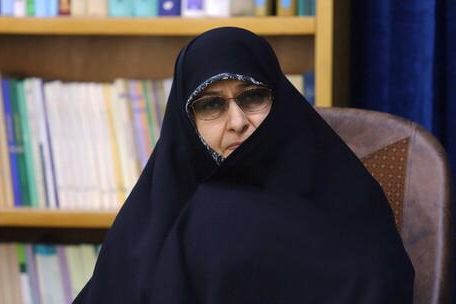
Iran's vice president for women and family affairs has revealed that late President Ebrahim Raisi had banned women from holding executive positions.

Iran's vice president for women and family affairs has revealed that late President Ebrahim Raisi had banned women from holding executive positions.
The remarks come as Ensieh Khazali herself has reached the position of vice president.
She said “executive forces and organizations are tasked with implementing their [women’s] plans under the guidance of women as operational headquarters, with women themselves serving as command and planning centers focusing on initiatives for women and families".
Ebrahim Raisi and his delegation, including foreign minister Hossein Amir-Abdollahian, died during a helicopter crash last month, triggering a snap presidential election to be held on Friday with four men running for the office.
Under Raisi, brutal crackdowns on protesters saw over 550 Iranians killed by state security forces and thousands more rounded up and imprisoned since September 2022.
It was also under his watch that hijab enforcement was strengthened after the death in morality policy custody of Mahsa Amini. Her murder led to the Woman, Life, Freedom uprising.
Last year, Raisi told the UN that Iranian women's rights were 'unparalleled' in spite of a policy the UN had the same month ,called "gender apartheid".
The Guardian Council, an unelected 12-member body that vets candidates, prohibits women from running for president in Iran despite some constitutional interpretations suggesting otherwise.
According to the Global Economic Forum's 2024 Global Gender Gap Report, Iran ranks 143rd out of 146 countries regarding gender equality.
Additionally, the Women’s Workplace Equality Index, published by the Council on Foreign Relations, places Iran among the bottom five countries regarding women’s workforce equality, alongside Sudan, Qatar, Syria, and Yemen.
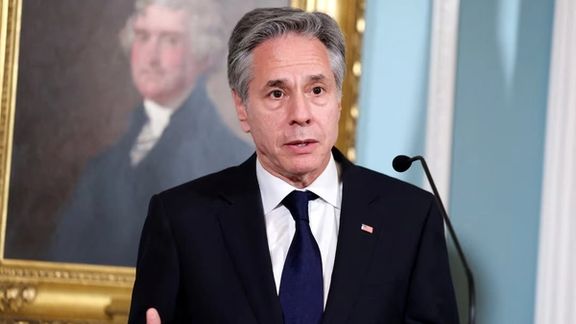
The US Department of State's latest International Religious Freedom report has revealed Iran's continued violations against religious freedoms.
Secretary of State, Antony Blinken, during the unveiling ceremony of the annual report, said that "government restrictions on religion had reached their highest global level since tracking began back in 2007".
The report, which annually assesses 200 countries, highlighted the repression of multiple minorities in Iran including the Baha'is. Only Islam, Christianity and Judaism are legal in Iran, though even Sunni Muslims face repression, along with restrictions on Jews and Christians.
Unofficial estimates suggest that more than 300,000 Baha'is live in Iran, making them the largest non-Muslim religious minority in the country and the most persecuted.
The Baha'is, in particular, suffer from systemic oppression, including arbitrary arrests, business closures, and frequent raids on their homes based on unfounded charges.
"The [Iranian] penal code provides for hudud punishments (those mandated by sharia), including amputation, flogging, and stoning. It specifies the death penalty for moharebeh ('enmity against God') and sabb al-nabi ('insulting the Prophet')," the report details, illustrating the harsh legal environment for those accused of religious crimes.
One of the most alarming aspects highlighted in the report is the variable application of the death penalty, depending on the religion of both the perpetrator and the victim, which disproportionately affects religious minorities. The report clarifies that "prevailing fatwas prescribe the death penalty for apostasy," showcasing the risks faced by individuals who deviate from the state-sanctioned religion or seek to renounce Islam.
Last year, rights group Rudaw claimed executions of the Kurdish minority had tripled, the majority of whom are Sunni muslims.
The repression extends beyond physical punishments, affecting various aspects of life for religious minorities. "The law, as typically interpreted, prohibits Muslim citizens from changing or renouncing their religious beliefs," the report states.
The 2023 report, like previous years, is compiled based on information gathered by US embassies from government officials, religious groups, NGOs, journalists, human rights observers, and other sources.
The US Commission for Religious Freedom's recommendations for 2024, list Iran as among the countries "of particular concern". "Religious freedom conditions in Iran are egregiously poor as the government continues to respond to calls for reform by systematically cracking down on religious minorities," its experts said.
"The government uses its official religious interpretation of Islam as an ongoing basis for denying freedom of religion and belief to citizens who express dissent through peaceful protest, including women and LGBTQI+ people."
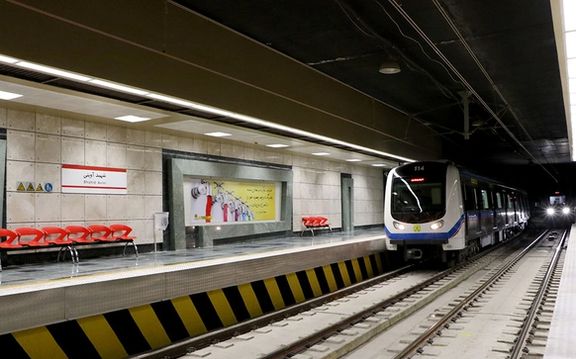
A hijab enforcer at a metro station in Shiraz, southern Iran, sexually assaulted a nine-year-old girl to "test maturity", according to human rights sources.
Lawyer Mohammad Hadi Jafarpour informed the Human Rights Activists News Agency (HRANA) that the officer aggressively touched the breasts of the child.
Enforcers then told the mother her daughter needed to wear a hijab because of her "prominent breasts."
Jafarpour, who was a witness to the incident, said there is no oversight of the hijab enforcers whose violent and sexually abusive actions haunt the country's women and girls as the regime struggles to enforce nationwide rejection of mandatory hijab laws.
“This lack of accountability severely impedes the ability to pursue legal recourse and protect citizens' rights in cases of misconduct," the lawyer said.
Hijab enforcers do not qualify as judicial officers and are only allowed to issue verbal warnings about hijab compliance.
“They lack any further authority, such as physically touching individuals, recording vehicle numbers, or taking photographs,” he explained.
In 2022, authorities introduced face recognition technology on subway CCTV cameras to photograph unveiled women. The heightened scrutiny followed the death of Mahsa Amini in hijab police custody in September 2022, which sparked widespread "Woman, Life, Freedom" protests.
Last year, Tehran municipality deployed 400 personnel to enforce hijab laws at subway stations in the capital. Iranian news sources and social media accounts documented an increased presence of officers equipped with cameras, dubbed as the "horror tunnel" for women as crackdowns on hijab only worsened in the wake of the 2022 uprising.
In recent years, hundreds of cases of state-sanctioned sexual abuse and humiliation at the hands of Iran's security forces and hijab enforcers have been publicly documented.
Activists and UN experts have argued that the increased oppression and institutionalized discrimination faced by women and girls under the Islamic regime constitutes or could amount to gender apartheid.
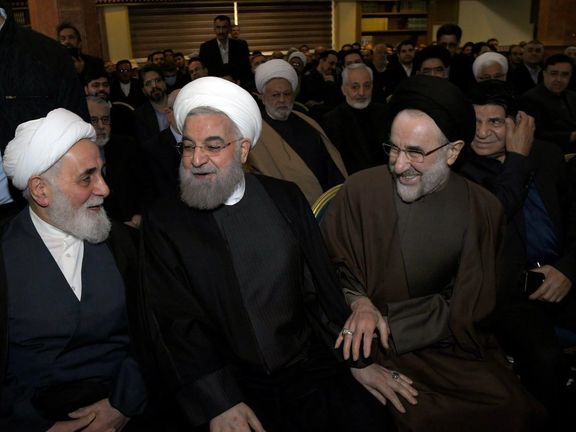
Prominent politicians in Iran weighed in on the issue of election Wednesday, with two former presidents endorsing the "moderate" candidate and several opposition figures calling on people to boycott Friday’s election.
Mohammad Khatami and Hassan Rouhani, each leading Iran’s government for two 4-year terms between 1997 and 2021, have come out in support of Masoud Pezeshkian –who has served as Khatami’s Minister for Health.
The two former presidents encouraged Iranians to turn up at the polling stations Friday and use their vote to keep out the hardliners from the executive. Their message stood in stark contrast to that of leading opposition figures who asked people to stay away from the ballot boxes and not recognize the “show” election.
“The most peaceful way to show your opposition to this blatant oppression, and to send the message of “No to the Islamic Republic”, is to boycott the upcoming farce of an election,” said well-known activist and former prisoner Hossein Ronaghi in a video message Wednesday.
Joining Ronaghi’s call from prison was Faezeh Hashemi, former lawmaker and the daughter of another former president, Ali Akbar Hashemi Rafsanjani. Before her, other voices from inside Iranian prisons had called for a boycott of the election, most notably, the Nobel Peace Prize laureate activist, Narges Mohammadi –who called the election “staged”.
The upcoming presidential election in Iran features five hand-picked insider politicians, after one hardliner, Amir Hossein Ghazizadeh Hashemi, quit the race in support of three other hardliners. The hardline camp are worried that their vote would be divided, allowing the only ‘moderate’, Pezeshkain, to move ahead at the vote.
Existing polls show that at least half the eligible voters may shun the election on Friday. This will be Iran’s first presidential election after the widespread uprising in 2022, in which at least 500 were killed and thousands arrested. Many of those who took to the streets across Iran and bore the brunt of the state’s brutality, have once more turned against the system with their call to boycott the election.
In a joint statement Wednesday, several mothers of slain protesters and dissidents called the upcoming election a "circus" that Iranians have to ignore, focusing instead on other ways to pressure the system to change.
"We will not stop seeking justice until we get our right to try and punish the criminals who innocently executed and shot our children,” they said.
Several student organizations and women's right groups also encouraged Iranians not to vote Friday. Over the weekend, over 500 teachers, union activists, and prominent cultural figures in Iran similarly issued a joint statement publicly declaring their decision to abstain from participating in the upcoming presidential elections.
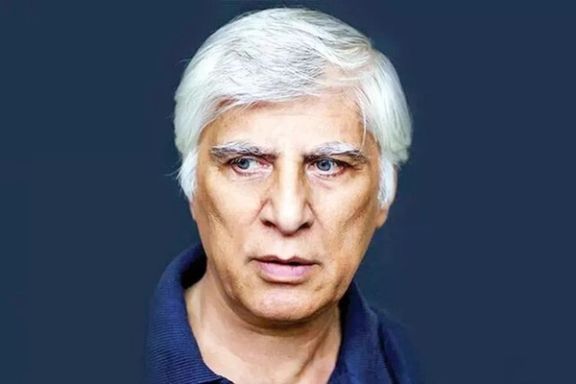
The Academy of Motion Picture Arts and Sciences has invited acclaimed Iranian filmmaker, playwright, and screenwriter Bahram Beyzai, and award-winning Iranian director Maryam Keshavarz to become members of the Academy.
This invitation is part of the Academy's announcement on Tuesday that 487 artists and motion picture executives worldwide have been selected for membership.
”We are thrilled to welcome this year’s class of new members to the Academy,” said Academy CEO Bill Kramer and Academy President Janet Yang in a joint statement. “These remarkably talented artists and professionals from around the world have made a significant impact on our filmmaking community.”
Beyzai has been selected to join two branches including the Writers and Directors branches of the organization according to the announcement. Upon accepting membership he must select one of the branches.
Keshavarz, known for her works such as “Circumstance” and “The Persian Version” has been selected to join the directors' branch.
Beyzai known for his films including “When We Are All Asleep” and “Killing Mad Dogs” left Iran in 2010 after consistently facing censorship and bans on his works on Iran and interrogations by security forces.
Following the 1979 revolution in Iran, Beyzayi’s works "Ballad of Tara" and "Death of Yazdgerd" were denied screening permits by the Iranian authorities amid censorship and crackdown on filmmakers, artists, and media which has continued since.
In April this year, Beyzai rejected an invitation to return to Iran stating that he refuses to be censored by the government or be forced into self-censorship.
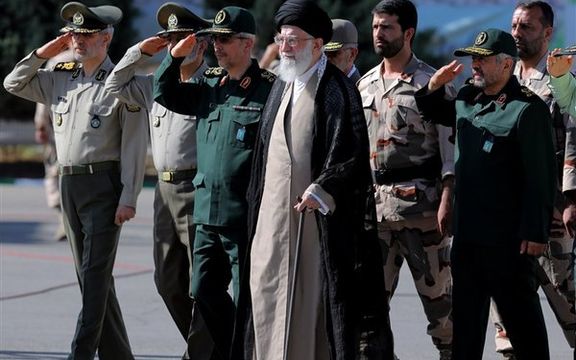
The UK’s Labour Party intends to proscribe Iran’s Revolutionary Guard as a terrorist entity, if it wins the general election next month, according to a report by the British newspaper The Telegraph.
The report comes in the wake of the IRGC designation in Canada, which was welcomed by the Iranian-Canadian community who have been pushing for this measure for a few years.
The current UK government, led by the Conservative prime minister Rishi Sunak, has considered a similar move but decided against it on a number of occasions.
Based on the Telegraph report, the leading figures in the Labor Party do not share the hesitation and would be willing to back a change in the law that would allow for the IRGC’s proscription.
Yvette Cooper and David Lammy, picked to be the next Home and Foreign secretaries if Labor wins, are said to support the measure.
The Labor Party’s 2024 manifesto includes an explicit reference to Iran’s IRGC, while criticizing the UK’s approach.
“From the Skripal poisonings to assassination plots by the Iranian Islamic Revolutionary Guard Corps, threats from hostile states or state-sponsored groups are on the rise, but Britain lacks a comprehensive framework to protect us,” the manifesto reads. “Labor will take the approach used for dealing with non-state terrorism and adapt it to deal with state-based domestic security threats.”
It is unclear when and how the Labor would attempt such change –if it gets to form the next UK government after the July 4 election. The proscription will be a lengthy process, since it is a legal process and would require a legal case by the government.
Supporters of the move in the Labor Party may point to the October 7 attack by Iran-backed Hamas and the concerted efforts of non-state armed forces across the Middle East, almost all of which are backed by Iran’s IRGC.